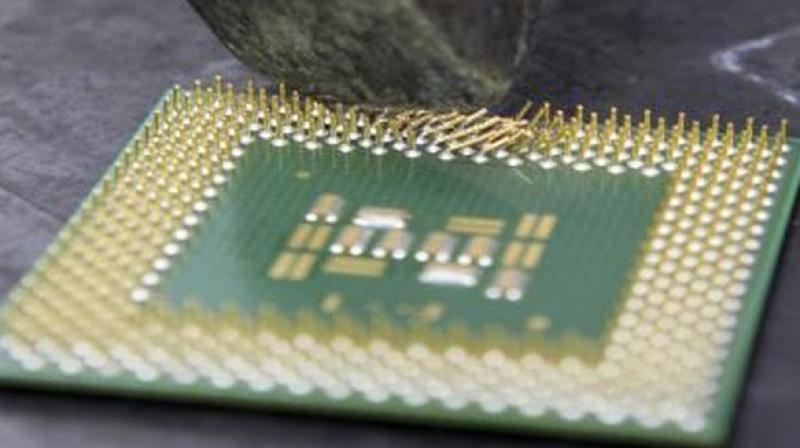Texas Instruments, other chip maker results spark rally

Texas Instruments Inc, Xilinx Inc and Lam Research Corp posted quarterly results on Wednesday that reassured investors concerned about US-China trade tensions, sparking a microchip industry stock rally after hours.
Dallas-based Texas Instruments (TI) missed Wall Street’s estimates for quarterly revenue but beat on profit. Investors were fearing worse performance amid warnings of a slowing smartphone market from Apple Inc. TI also forecast first quarter revenue and profit below estimates.
“People were expecting even worse results. It does not mean everything is behind them ...we are still in downturn and what macro does in the next few months and quarters nobody knows,” Stifel, Nicolaus & Co analyst Tore Svanberg said.
Xilinx surged 8 per cent in extended trade after the programmable chipmaker’s quarterly results and outlook beat analysts’ expectations.
The company said that communications revenue rose 41 per cent, boosted by rollouts and preparation for so-called 5G cell phone networks in South Korea and, to a lesser extent, China and North America.
Lam Research, which makes semiconductor manufacturing equipment, jumped 7.4 per cent after the bell following its better-than-expected quarterly results and its announcement of a $5 billion stock buyback authorization.
The semiconductor industry had a tumultuous opening to 2019 with concerns of global tech slowdown with warnings from Samsung Electronics Co Ltd, Taiwan Semiconductor Manufacturing Co Ltd and Apple, which earlier this month cut its quarterly sales forecast due to poor iPhone demand in China.
The Philadelphia Semiconductor Index .SOX is down 19 per cent from its record high in March 2018.
“Investors, for today at least, are probably hoping that cycle starts moving back up in the back half,” said analyst Chaim Siegel from Elazar Advisors.
After hours on Wednesday the rally included shares of Applied Materials Inc, KLA-Tencor Corp, Nvidia Corp and Intel Corp, which reports its results on Thursday.
Apple had blamed economic weakness in China and investors were seeking to learn more about China’s economic performance. They also wanted indications if any weakness was widespread or specific to Apple.
On a post-earnings call, Texas Instruments, which supplies touchscreen controllers, power management chips and a control device for Apple’s iPhones and iPads, said demand in China was weaker than other regions. Personal electronics and specifically smartphones were weaker, including Chinese smartphone manufacturers.
“The weakness we are seeing is primarily due to the semiconductor cycle. In addition, the microenvironment, including uncertainty caused by trade tensions, could impact the depth and duration of this cycle,” said Chief Financial Officer Rafael Lizardi on the call.
Shares of the Dallas-based company rose nearly 1.37 per cent to $96.80 in after-hours trading.
Texas Instruments said revenue overall fell 1 per cent to $3.72 billion. That missed analysts’ average estimate of $3.74 billion, according to IBES data from Refinitiv.
TI’s net income surged to $1.24 billion in the fourth quarter ended Dec. 31, from $344 million or 34 cents a share a year earlier, thanks to a significantly lower provision for income taxes.
Excluding one-time items, the company earned $1.27 per share, beating analysts estimates of $1.24.
The company expects first-quarter revenue of between $3.34 billion to $3.62 billion, and earnings of $1.03 to $1.21 per share.
Analysts, on average, had forecast revenue of $3.59 billion and earnings of $1.20 per share, according to IBES data from Refinitiv.
